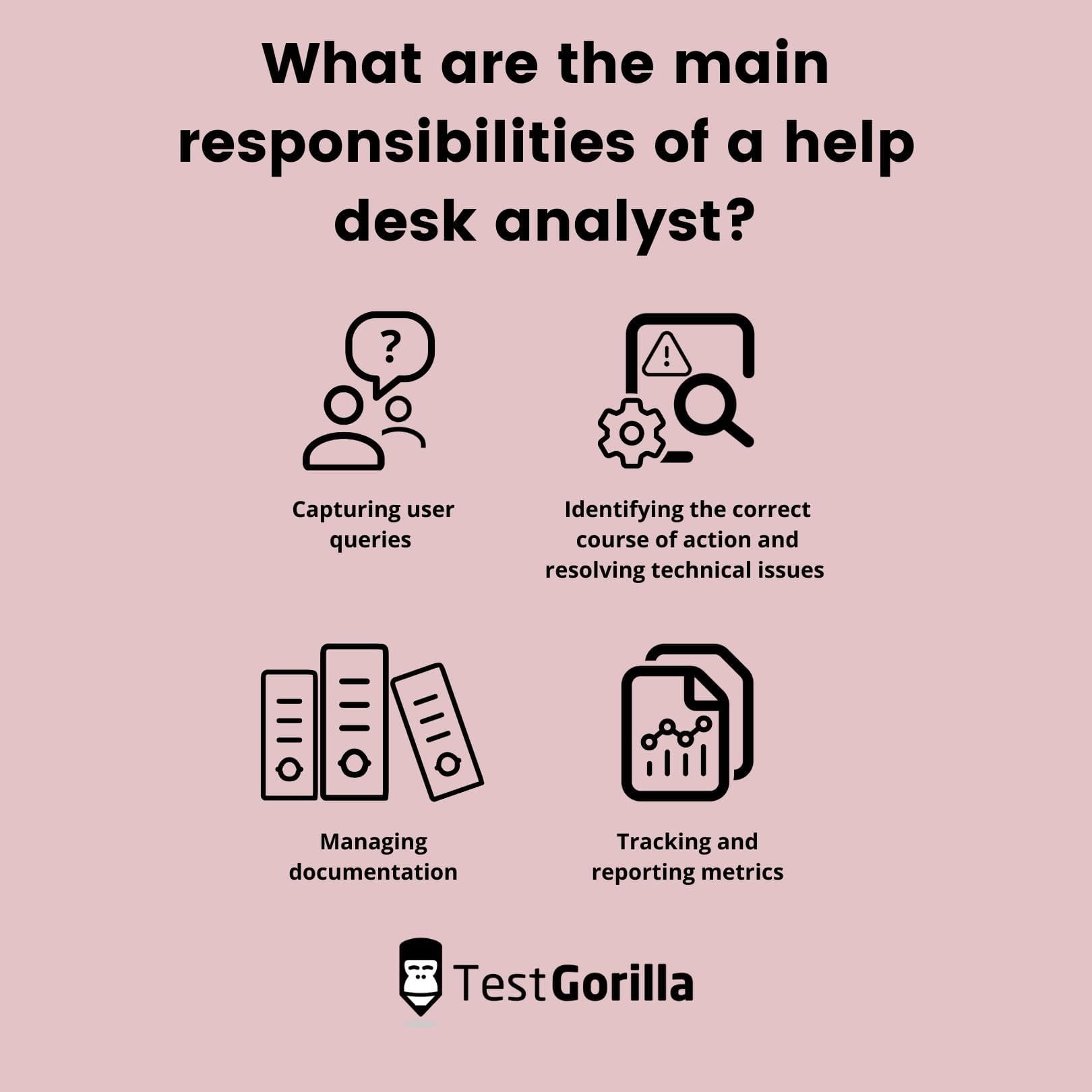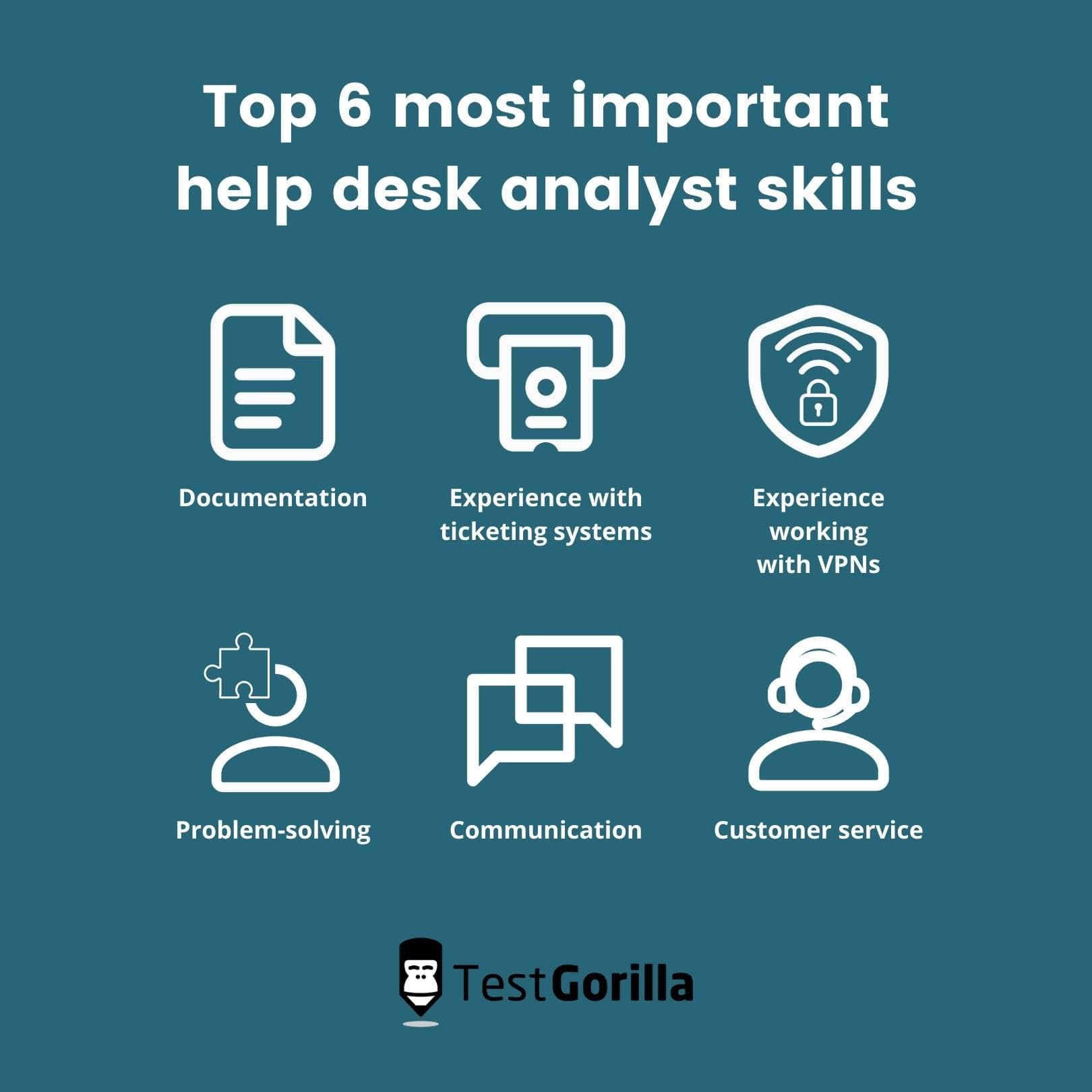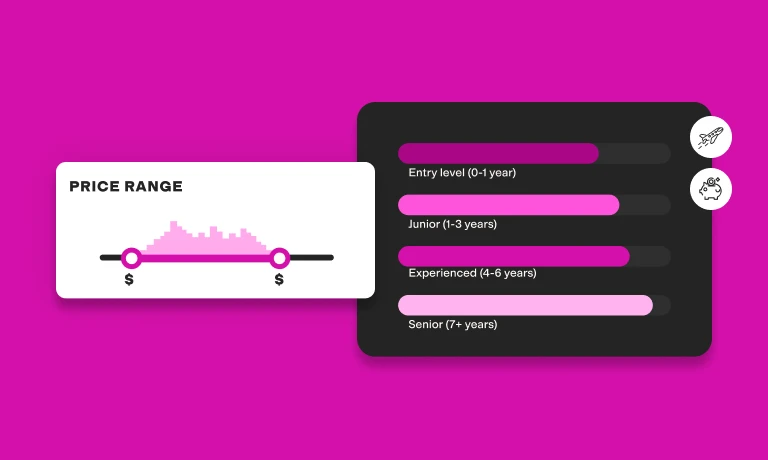If you’ve ever forgotten your password or found yourself locked out of an essential application at work, you already know how essential help desk analysts are for ensuring a company’s daily operations run smoothly.
Help desk analysts are the first port of call for internal and external customers when they need technical assistance. And since the onset of the pandemic and the increase in remote work, their role has expanded and become even more crucial for resolving issues quickly and efficiently from afar.
So, if you’re hiring for a help desk analyst position, it’s important not only to understand the full scope of their roles and responsibilities but also to make sure that the successful candidate has the right skills and experience to meet your business’ demands.
Stick with us as we explore the role of a help desk analyst in more detail, including which skills to look out for when recruiting for the role and how you can easily test candidates’ help desk analyst abilities before you hire them.
What is a help desk analyst?
A help desk analyst holds one of the most important and visible roles in any organization’s IT department.
They are the first point of contact for customers who need technical assistance with their computers or other relevant devices.
Help desk analysts deal with hardware, software, and network issues, and serve either internal staff (your employees) or external customers – or, depending on your business model, a mix of both.
Help desk analysts deal with multiple inquiries every day, and are responsible for the efficient resolution of technical issues to make sure that organizations can run at full capacity and customers can recover access to products or services as quickly as possible.
What are the main responsibilities of a help desk analyst?
Help desk analysts receive a high volume of support requests, but their responsibilities don’t stop there.
They have several other important responsibilities that help ensure customers’ and employees’ systems continue to work at optimal performance.
1. Capturing user queries
When users make contact via email, chat, or phone, help desk analysts are responsible for categorizing and recording queries or triaging them for further processing. They’re also responsible for communicating actions and resolutions through the correct channels.
2. Identifying the correct course of action and resolving technical issues
Help desk analysts are in charge of identifying and diagnosing issues, including advising users on how to solve the problems themselves or taking over the resolution of the issue – remotely or in person.
They’re also tasked with managing and prioritizing user queries depending on issue severity, escalating more complex issues to higher levels of support, and tracking issues from start to resolution.
3. Managing documentation
IT teams and departments are always looking for ways to optimize processes. One of the ways they do this is by requiring help desk analysts to manage, maintain, and update comprehensive documentation relating to problems that have occurred.
4. Tracking and reporting metrics
Help desk analysts are also often responsible for tracking and reporting metrics such as ticket volume, tickets opened vs. solved, response time, and ticket backlogs. Again, this helps the IT team as a whole to optimize systems and processes where necessary.
The best insights on HR and recruitment, delivered to your inbox.
Biweekly updates. No spam. Unsubscribe any time.
Top 6 most important help desk analyst skills
Most help desk analysts will have similar skill sets, but there are a handful of core skills you’ll need to include in your help desk analyst job description to attract the right candidates.
1. Documentation skills
The ability to document and explain technical issues and their resolution clearly is a key help desk analyst skill. Good documentation skills benefit the whole organization by reducing the amount of time spent solving the same problems.
2. Experience with ticketing systems
Ticketing systems like Zendesk are the backbone of help desk teams. Potential candidates will need to be skilled in using ticketing systems to track and solve technical problems and communicate with users.
3. Experience working with VPNs (Virtual Private Networks)
Most modern organizations use VPNs to protect sensitive and valuable information. This means that candidates need to be skilled in working with VPNs, including knowing how to maintain one and troubleshoot different issues.
4. Problem-solving skills
Problem-solving skills are one of the most important soft skills for help desk analysts. They need to be able to solve problems, but they also need to prioritize queries, react quickly to complex issues, and develop creative solutions to new problems.
5. Communication skills
Help desk analysts need to clearly communicate why an issue is occurring and how it will be solved, have empathy for users’ situations, coach and instruct them on how to perform tasks when necessary, and use active listening skills to clarify the issue at hand.
6. Customer-service skills
Help desk analysts are often the first people users interact with when they run into problems. Therefore, customer-service skills such as helping users remain calm, listening to their needs, and maintaining patience and professionalism are required.
How to hire the best help desk analyst for your business
Once you’ve written a stellar job description (don’t forget to include the skills and responsibilities we’ve covered here, as well as information on the help desk analyst salary) and then received job applications, you’ll need to start whittling down the candidate pool.
But, don’t get stuck with a stack of CVs. Skills-based hiring is on the rise – which means you should be looking for candidates with the right skills for the job rather than those who have a specific degree or skills listed on their CVs.
TestGorilla’s customized assessments help you slim down your candidate pool by testing your candidates’ help desk analyst skills.
By creating your own pre-screening assessment that includes a combination of role-specific and soft skills, you can assess and rank each candidate in an unbiased environment, and quickly identify which candidates best match your criteria.
To get you started, we’ve put together this group of relevant help desk analyst tests that you can use in your assessment, including:
Hire the best help desk analysts with the help of TestGorilla
Help desk analysts can’t demonstrate their skills in a CV or during an interview – the only way to verify their capabilities is by putting them to the test.
But recruiting for technical roles doesn’t need to be time-consuming. With TestGorilla, you can build customized assessments to evaluate candidates’ soft and hard skills to help you make better, informed hiring decisions.
Sign up for a free account today, or book a free, live demo to learn more about how TestGorilla can help you identify your next professional help desk analyst.
You've scrolled this far
Why not try TestGorilla for free, and see what happens when you put skills first.




















